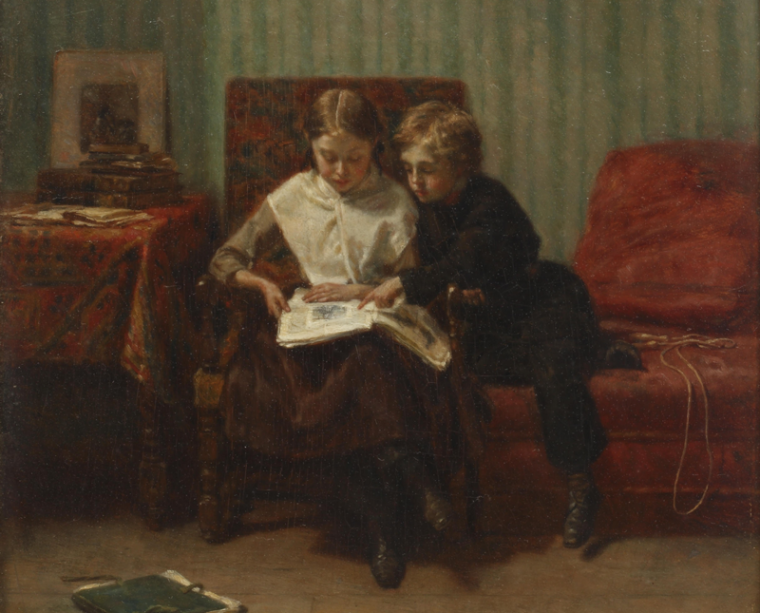While there is no single understanding of democracy, there is broad agreement that it involves a people allowed to meet and speak freely, with the right to choose and question its governing body. Yet, in Australia, children have little experience with active democratic citizenship before they are required to think about how and by whom they would like to be governed. Families are not democratic. Classrooms are not democratic. Arguably, neither is the media.
This means that when young adults first vote, despite having wide access to information, their experience with actually free and voluntary inquiry, analysis and decision making, is limited. So, while as citizens in democracies we are entitled to hold opinions and to vote accordingly, opinions that are formed from partial information, inform only partially. Citizens can only behave democratically if they are fully informed and engaged with the world around them.
How can a library create the conditions necessary for young people to gain authentic experience as citizens in a democracy? I have pondered this question many times during my 13 years managing a high school library. I have applied two principles in our school library to create authentic democratic experiences: provide access to information and engage students in discourse.
Firstly, there is the opportunity to be in the library and to access its resources, alone or with others, freely and voluntarily. There is the ability to occupy the spaces and make them your own. In this sense, the library is a Third Space (Bhabha, 1994; Barton, Tan & Rivet, 2008). The library provides access to information and to reading material that not only supports the agendas of the curriculum and the popular but also facilitates and encourages engagement with as full a range of ideas, narratives, histories, cultures and beliefs as it can. The breadth and the depth of its resource provision is not limited by fear or favour.
Much of the thinking that occurs in schools is directed through curriculum accountabilities, by adult and student societal mores and by familial cultural heritage. Yet, in a democratic society, situating these in an even larger global context is essential. For young people, entering into discourse about the relationships discovered in broader contexts, that is, entering into democratic citizenry, is new and tender. To this end, the library also runs two wide reading and discussion groups, one for middle school students and one for senior school students. The changing thematic foci of these groups are student determined and extra-curricular. In these groups, there is no need for consensus about what a book or film is really about. Different encounters with any of the isms, for example, are openly explored. Debates are not won or lost and deep and meaningful discussions are encouraged. There is no judgement and no assessment. Active participation is what lends strength to the groups rather than passive popularity (Book Club blog). This is the second principle that nurtures democracy in our library.
Yet, these two principles for action would not be possible unless the rules that govern the library supported them, rather than restricted them. The only rules that exist are those that divest the power to participate to all. All library rules are arbitrary in a sense, and so they are also open to scrutiny, change and to defense. It is the borrower’s actions as they use the library, which determine the rules of engagement.
A school library can demonstrate, therefore, the first principles of a democratic society. It can answer positively some of the questions at the heart of a living democracy:
Can I think, read, explore and write freely and voluntarily?
Can I meet with others so that collaboration is shared rather than ‘required’?
Are the works of humankind available to me?
Are the available works and discourses steered by special interests, prejudices, beliefs and world views?
Is a spirit of independence that inspires curiosity, reflection and enjoyment nurtured as paramount rather than external reward?
Am I enabled to participate as an equal, no matter what my needs or my influence?
The 2015 International Association of School Libraries Conference’s title statement was: “The school library rocks”. It rocks the cradle of democracy, it dances to the beat of equality, it provides the foundation stone for free access to ideas and information, it rouses to excitement, astonishes and can disturb the equilibrium of the ordinary, and it challenges as it plays with the accepted. It holds open the door to learning and invites in the reluctant and the curious, the studious and the easy going. In school libraries there is an aversion to dogmatism, partiality and fundamentalism. There is a commitment to connection and inclusion and to allowing a diversity of ideas to be heard and reflected on. In a school library, children can experience firsthand, where democratic power lies.
Bibliography
Barton, A. C., Tan, E., & Rivet, A. (2008). Creating hybrid spaces for engaging school science among urban middle school girls. American Educational Research Journal, 45(1), 68-103. Retrieved from http://dx.doi.org/10.3102/0002831207308641
Bhabha, H. K. (1994). The location of culture. New York: Routledge.
Lefebvre, H. (1991). The production of space. (D. Nicholson-Smith, Trans.) Malden, Massachusetts: Wiley-Blackwell. (Original work published 1974).

